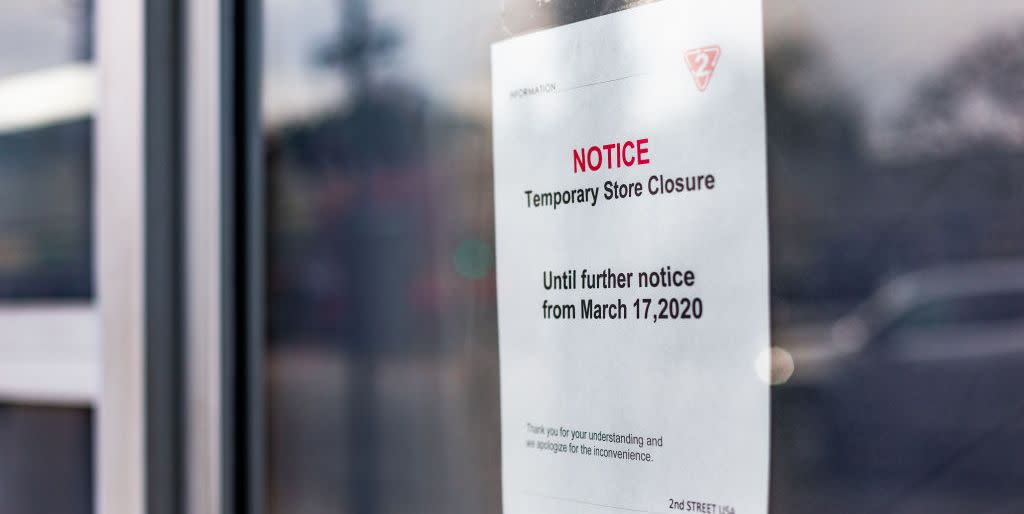Almost 16,000 Restaurants Have Closed Permanently During The COVID-19 Pandemic

As the COVID-19 pandemic rages on, we continue to get a clearer picture of how deeply it has affected the food industry, specifically restaurants. In the most recent instance, Yelp reported that almost 16,000 restaurants have permanently closed since coronavirus surfaced in the U.S.
In the new report, previously reported on by Business Insider, the company said that as of July 10, there have been 26,160 total restaurant closures in the U.S., according to data from its platform. Of those closed restaurants, 15,770 have now permanently closed, AKA 60 percent of all closed restaurants are permanent closures as of this date. This amounts to 2,956 more permanent closures since June 15, a 23 percent increase in permanent closures in just over a month. (It's worth noting that Yelp's data is based on the restaurants listed on its platform, which it has previously said is representative, but industry experts say we'll have to wait until official government reports to get the full scope of closures).
In addition to those shocking numbers, the Yelp report also noted that restaurants have now surpassed the retail industry to make up the highest total business closures since the pandemic began.
The bar and nightlife industry has been similarly decimated. Despite being six times smaller than the restaurant industry, it has also seen mass closures, with roughly 5,454 total business closures, 2,429 of which are classified as permanent closures, making the industry's permanent closures 44 percent.
A bulk of total business closures are in highly populated cities like Los Angeles, New York, and generally in larger states like California and Texas. This data comes as many restaurants have reported locations closures from small businesses to chains. In April, the National Restaurant Association said that the restaurant industry expects to lose $80 billion in sales by the end of that month and up to $240 billion by the end of 2020.
You Might Also Like

